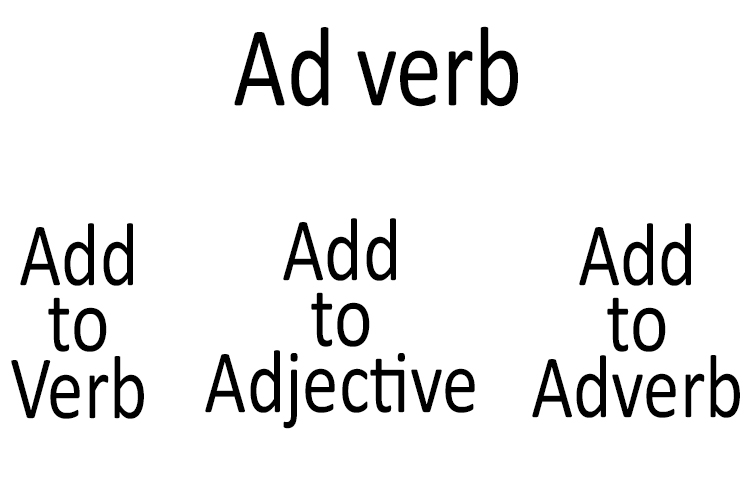Adverb 2 – An adverb adds to either the verb, adjective or another adverb
This now covers all the ways to find an adverb in a sentence including those that do not end in 'ly'. But you do first have to search a sentence and ask 'what is the noun, verb and, if there is one, the adjective?'
Remember:

An adverb is a word that modifies (describes) a verb, an adjective or an adverb.
Adverb modifies verb:
He sings loudly.
He = Pronoun Sings = Verb Loudly = Adverb
(Loudly modifies sing)
I rode a bus here.
I = Pronoun Rode = Verb A = Article Bus = Noun Here = Adverb
(Here modifies rode)
I looked everywhere.
I = Pronoun Looked = Verb Everywhere = Adverb
(everywhere modifies looked)
Adverb modifies adjective:
I am extremely impressed.
I = Pronoun Am = Verb Extremely = Adverb Impressed = Adjective
(extremely modifies impressed)
Paula was almost finished.
Paula = Noun Was = Verb Almost = Adverb Finished = Adjective
(Almost modifies finished)
The water is hot enough.
The = Article Water - Noun Is = Verb Hot = Adjective Enough = Adverb
(Enough modifies hot)
Adverb modifies adverb:
He Finished his homework very quickly.
He = Pronoun Finished = Verb His = Pronoun Homework = Noun Very = Adverb Quickly = Adverb
(Very modifies quickly)
My dog can run unusually quickly.
My = Pronoun Dog = Noun Can = Verb Run = Verb Unusually = Adverb Quickly = Adverb
(Unusually modifies quickly)
The restaurant is almost fully booked.
The = Article Restaurant = Noun Is = Verb Almost = Adverb Fully = Adverb Booked = Verb
(Almost modifies fully)




